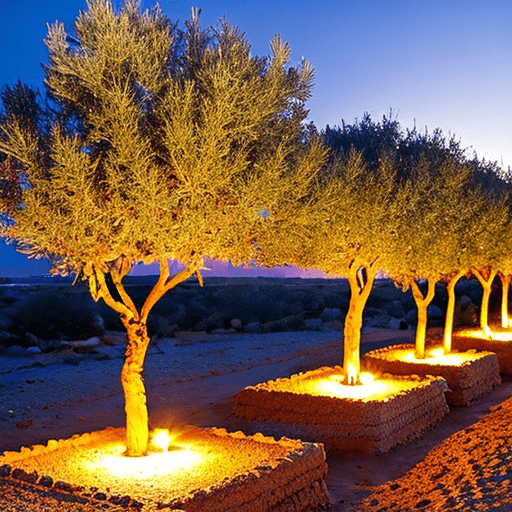Hanukkah: The Festival of Lights and Yehovah’s Faithfulness

Hanukkah, also known as the Festival of Lights, is a joyous and significant holiday celebrated by Jewish communities around the world. It commemorates the miracle of the oil and the rededication of the Second Temple in Jerusalem. Beyond its historical significance, Hanukkah carries profound spiritual meaning, reminding us of Yehovah’s faithfulness, His deliverance, and the enduring light of His presence. In this post, we will explore the origins of Hanukkah, its traditions and symbols, its spiritual significance, and its relevance for believers today.
I. Historical Background of Hanukkah:
A. Maccabean Revolt: Hanukkah commemorates the victory of the Maccabees, a Jewish rebel group, against the oppressive Seleucid Empire in the 2nd century BCE. It marked the restoration of Jewish sovereignty in Jerusalem.
B. Temple Rededication: After the military victory, the Maccabees rededicated the Second Temple, which had been defiled by the Seleucids, and restored the worship of Yehovah.
II. The Miracle of the Oil:
A. The Menorah: One of the central symbols of Hanukkah is the menorah, a candelabrum with eight branches and a central branch. It represents the miracle that occurred during the rededication, where a small amount of oil miraculously burned for eight days instead of just one, symbolizing Yehovah’s provision and presence.
B. Lighting the Menorah: Each night of Hanukkah, an additional candle is lit, starting with one candle on the first night and progressing to eight candles on the final night. The ninth branch, known as the shamash, is used to light the other candles.
III. Spiritual Significance of Hanukkah:
A. Yehovah’s Faithfulness: Hanukkah serves as a reminder of Yehovah’s faithfulness to His people throughout history. Despite the oppression they faced, Yehovah intervened and brought about deliverance, preserving the Jewish faith and allowing them to worship Him freely.
B. The Light of Yehovah’s Presence: The lighting of the menorah symbolizes the light of Yehovah’s presence in our lives. It represents the spiritual light that dispels darkness, brings hope, and guides us in times of difficulty.
IV. Relevance for Believers Today:
A. Reflecting on Yehovah’s Faithfulness: Hanukkah invites believers, both Jewish and Gentile, to reflect on Yehovah’s faithfulness in their own lives. It serves as a reminder of His deliverance, provision, and presence, inspiring gratitude and trust in His faithfulness.
B. Embracing Spiritual Light: The festival encourages believers to embrace the spiritual light of Yehovah’s presence in their lives and share it with others. It reminds us to be a source of hope, joy, and love in a world that needs the transformative power of Yehovah’s light.
C. Unity and Celebration: Hanukkah is a time of unity and celebration, where families and communities come together to rejoice in Yehovah’s faithfulness. It presents an opportunity for believers to foster unity, appreciate diversity, and celebrate the blessings of Yehovah’s provision.
Conclusion:
Hanukkah, the Festival of Lights, is a beautiful celebration of Yehovah’s faithfulness, deliverance, and the enduring light of His presence. As believers, let us reflect on Yehovah’s faithfulness in our lives, embrace the spiritual light He brings, and share that light with others. May Hanukkah serve as a reminder of Yehovah’s enduring love and provision, and may it inspire us to walk in His light and spread the message of hope to a world in need.

